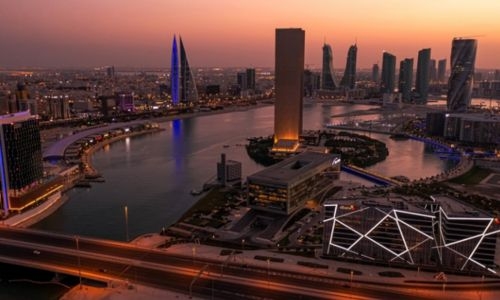Bahrain Needs Regenerative Tourism
By Kota Sriraj
Situated in the heart of Arabian Gulf, Bahrain’s unique cultural heritage blended with modern infrastructure complimented by warm hospitality has helped the nation carve out a niche position on the international tourism map.
Bahrain’s historical significance dating back centuries, with a heritage that intertwines ancient civilisations, trade routes, and cultural influences has made it the sought-after destination for discerning tourists.
It is therefore no wonder that in the first half of 2023 the inbound tourist flow increased by 51%, reaching 5.9 million visitors as compared to the same period in 2022.
Given this accelerated tourist flow, the Kingdom has taken benchmarking measures to ensure that the the tourist load does not lead to infrastructural or environmental challenges.
As a part of this environmental consciousness, Bahrain has embraced sustainable eco-tourism practices and has made commendable progress in ensuring protection of delicate ecosystems of marine life and historical buildings from the daily pressure of tourist visits.
As a result, the tourists too can now explore natural wonders while contributing positively to their conservation.
But as the visitor numbers spiral, Bahrain needs to adopt futuristic measures that not only promote sustainable tourism but also ensure that tourists leave a positive impact on the destination.
Regenerative tourism is a relatively new concept that goes beyond sustainable tourism and talks about what the tourists can do to ensure positive impact on the destination they are visiting.
In contrast to sustainable tourism, Regenerative tourism goes a major step further by actively seeking to improve and restore ecosystems, communities, and cultures.
The regenerative approach aims to leave a positive impact, contributing to the well-being of destinations and fostering resilience.
It emphasises on the restoration and revitalisation of natural and cultural assets which is much needed given the stresses the tourist destinations are being subjected to.
In the best interests of dialling down the adverse impact of burgeoning tourism, Bahrain must combine sustainable tourism with Regenerative tourism.
This will not only minimise negative impact of tourist flow on the tourist destinations but will also actively contribute towards restoring and enhancing ecosystems.
Bahrain can utilise this concept to promote reforestation projects, provide impetus to habitat restoration initiatives and provide encouragement to other initiatives aimed at improving the overall health of natural environments.
Bahrain has a rich culture, art and crafts history which can receive immense preservation boost with the help of Regenerative tourism.
This can be done by actively contributing to the revitalisation of local cultures and supporting the traditional arts and crafts, promoting cultural exchanges, and actively engaging tourists in meaningful interactions with local communities.
This in turn can leave the tourists with an amazing immersive experience and in the process, help establish a new tourism benchmark for other nations to emulate.
Regenerative tourism is a vibrant new concept which can be Bahrain’s future of tourism.
(The views and opinions expressed in this article are those of the author and do not necessarily reflect the official policy or position of the Daily Tribune)
KOTA SRIRAJ
Related Posts


